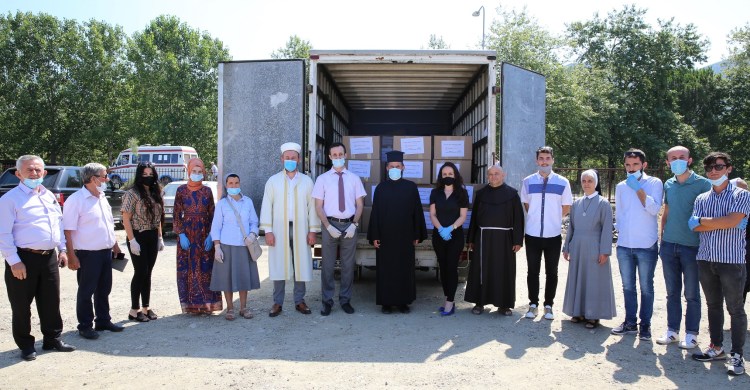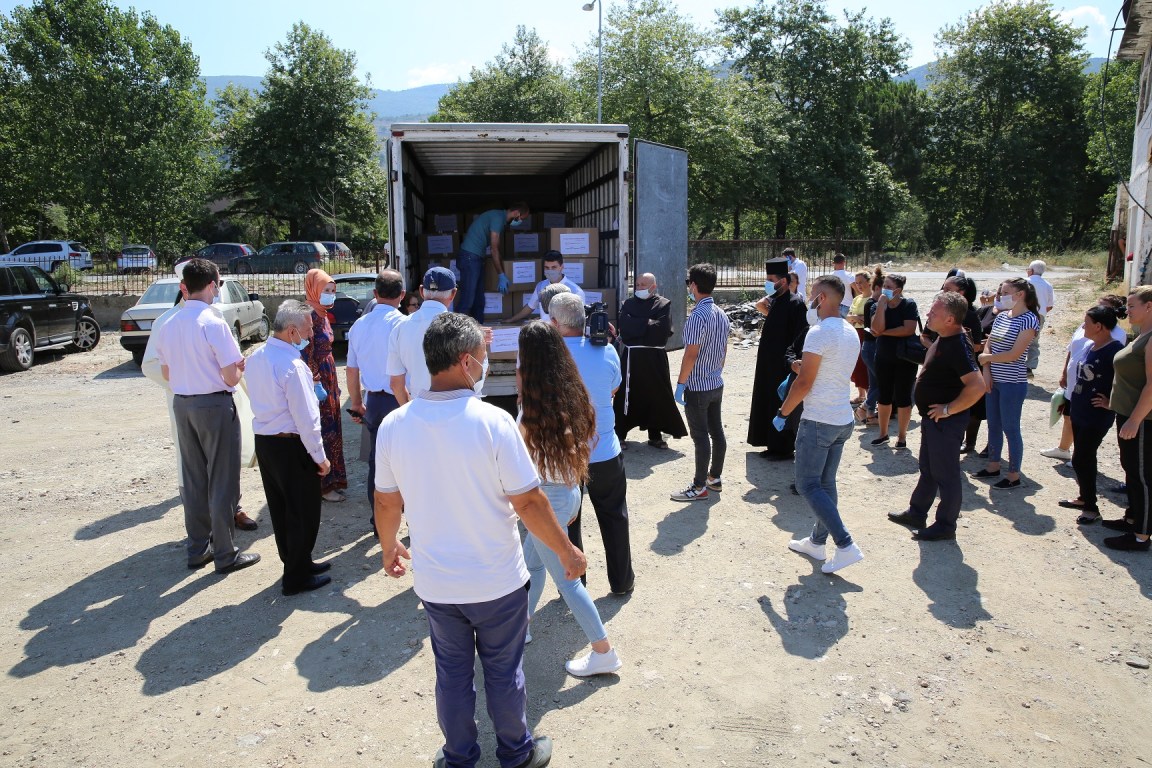Distributing Urgent Supplies to Orphans and Vulnerable Families in Albania
20200817Religions for Peace’s Interreligious Council of Albania (IRC Albania) launched a multi-religious humanitarian initiative distributing emergency aid to orphans and vulnerable families impacted by a devastating earthquake in November 2019 and now are challenged by the socio-economic impact of COVID-19. Fifteen religious, civil society and government leaders launched the initiative with the National Association of Orphans in the townlet of Laç, unloading a full truck-load of supplies for orphans. IRC Albania youth volunteers continued the effort delivering another 175 packages of food and disinfectant to families in need in Kurbin, Durrës and Tirana. Religions for Peace and its affiliated regional body, the European Council of Religious Leaders (ECRL), were able to support this effort through the Multi-religious Humanitarian Fund.
Dr. Genti Kruja, the General Secretary of IRC Albania, says that religious communities immediately responded with respect and adhered to the specific guidelines set out by the Albanian health institutions upon Covid-19 emergence in the country. These regulations also required temporary closures of all places of worship and “This was a difficult thing for those of faith, as it coincided with Easter, Ramadan and Eid,” noted Dr. Kruja.
Feeling compelled to do more to support communities in need, IRC Albania launched this project, promoting the collaboration between Christians and Muslims as well as between youth and women from various parts of the country. IRC Albania’s interfaith women and youth committees were “very excited to organise this event. The involvement of young people from different faiths and traditions highlighted a feeling of unconditional support and love.”
This is just one model of how Religions for Peace and ECRL, in collaboration with IRC Albania, have come together and responded to the detrimental impact of the coronavirus through multi-religious collaboration. Dr. Kruja said that “It was amazing to see a Muslim female teacher with a Christian nun, and a Muslim Imam with a Christian Priest holding aid boxes together.”
IRC Albania is well connected to various educational and religious institutions across Albania, which has provided an established network for multi-religious and multi-stakeholder response when tragedy strikes, as for instance during the 2019 earthquake, when places of worship were opened to provide refuge to the most vulnerable.
Albania has seen a resurgence of religious observance and engagement in public life, in the last decades following the communist era. Dr. Kruja and his fellow religious leaders in the interreligious council welcome the new forms of collaboration this has brought to the country, which they see as enriching social cohesion: “[increasing multi-religious engagement] has had a positive impact, because it has brought cooperation in a new way … between Muslims and Christians, as well as women and youth. Different religious communities are like pieces of different colours in a mosaic of interfaith harmony.”

